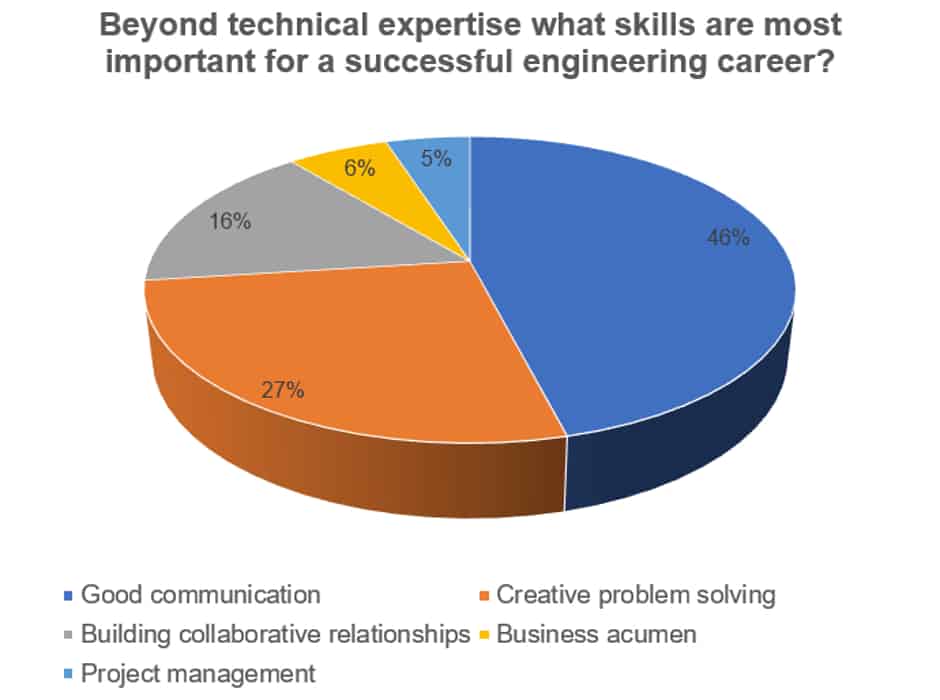Last week's poll: what non-technical skills are most important for a successful engineering career?
Last week’s poll, run in conjunction with Frazer-Nash Consultancy, focussed on some of the softer skills that engineers need for a successful career in an increasingly cross-disciplinary world.


Earlier this year 34 per cent of respondents to our 2018 Salary Survey considered good communication as the skill most missing from industry today. Perhaps unsurprisingly, 46 per cent of poll respondents also take the view that good communication skills are important for a successful engineering career.
Just over a quarter of respondents (27 per cent) agreed that creative problem solving is an important trait, followed by 16 per cent who value building collaborative relationships.
Of the remainder, six per cent saw business acumen as vital, followed by the final five per cent who value project management as an essential ‘soft’ skill.
For Ananth Sangli, building collaborative relationships is a ‘very crucial skill for an engineer, as most projects involve multi-disciplinary functions, requiring many players to work together.’
Colin Scowen agreed, adding: [collaborative relationships] don’t have to be only technical, they can also encompass some of the other soft skills mentioned, as well as skills that are not necessarily engineering technical or soft.’
Register now to continue reading
Thanks for visiting The Engineer. You’ve now reached your monthly limit of news stories. Register for free to unlock unlimited access to all of our news coverage, as well as premium content including opinion, in-depth features and special reports.
Benefits of registering
-
In-depth insights and coverage of key emerging trends
-
Unrestricted access to special reports throughout the year
-
Daily technology news delivered straight to your inbox










National Gas receives funding to develop Gravitricity underground hydrogen storage system
There can't possibly ever be a '<i>business</i>' case for the <i><b>bulk</b></i> storage of hydrogen, since Green hydrogen electrolysis...